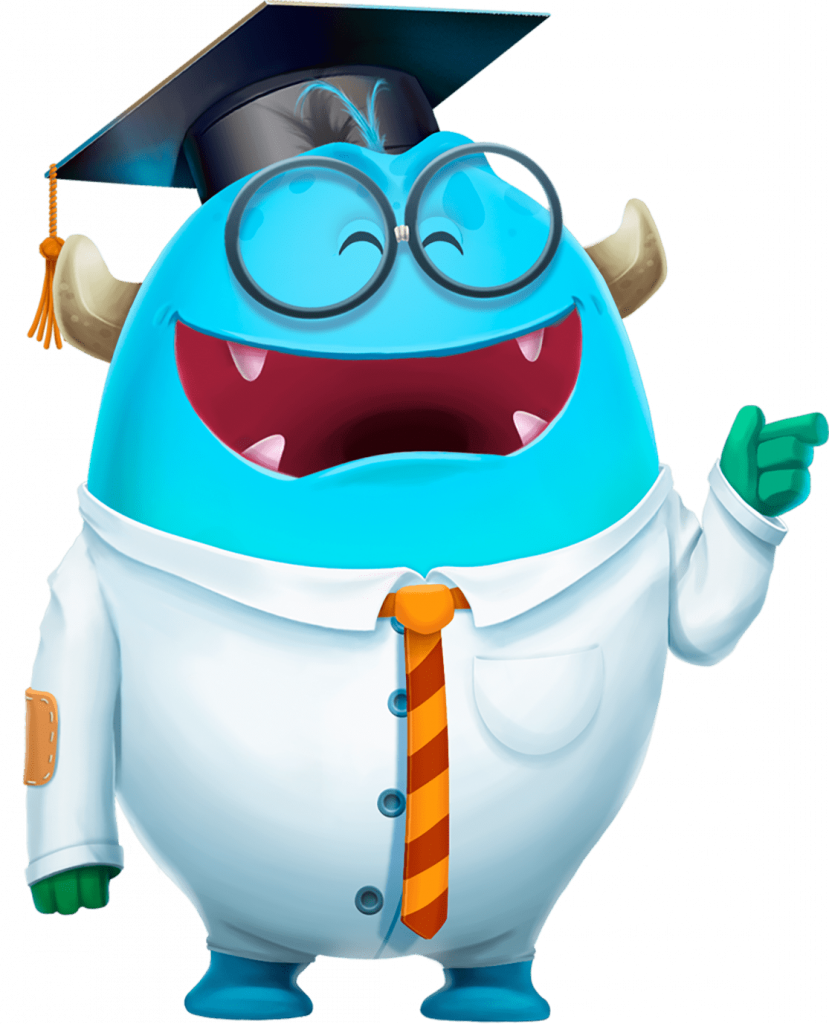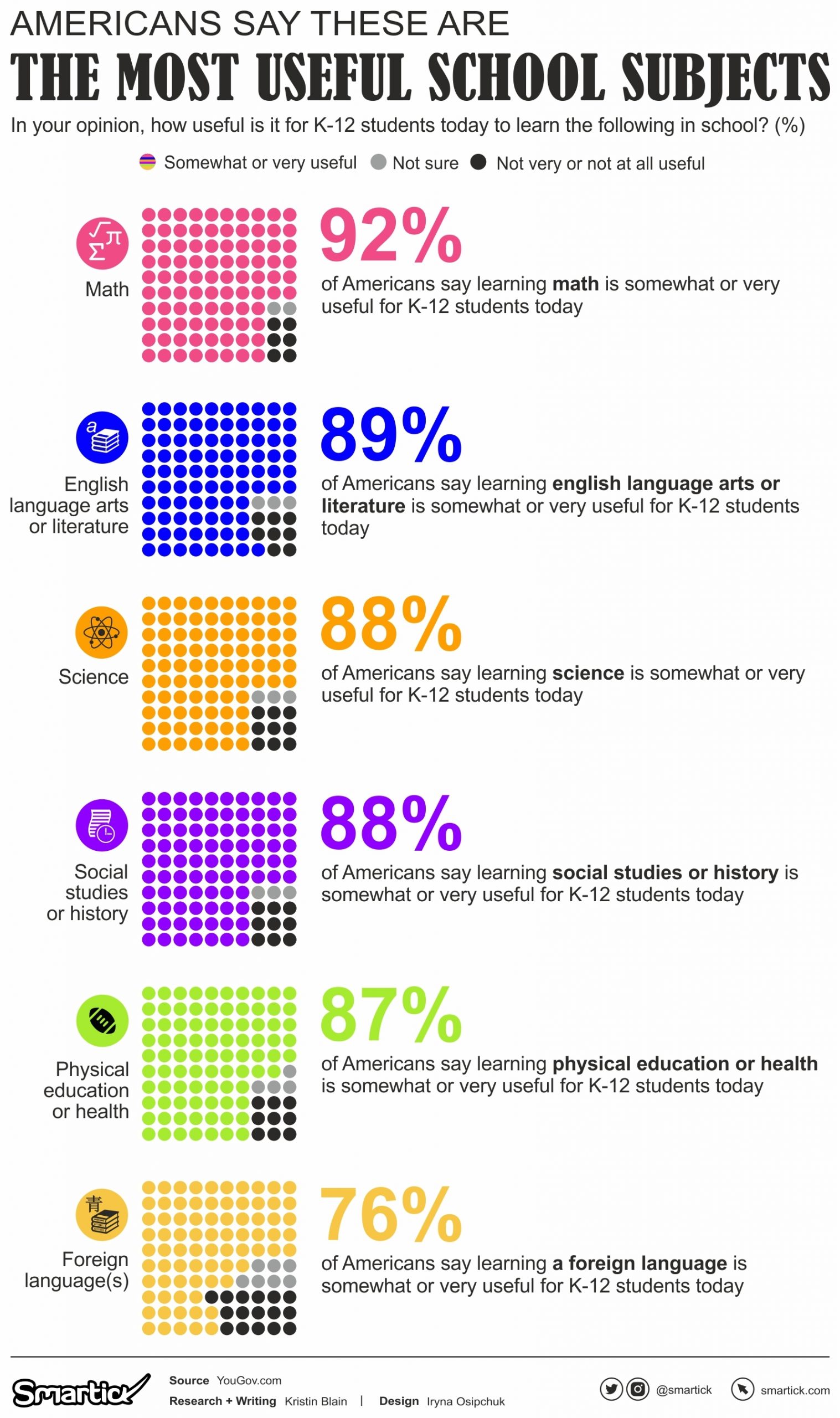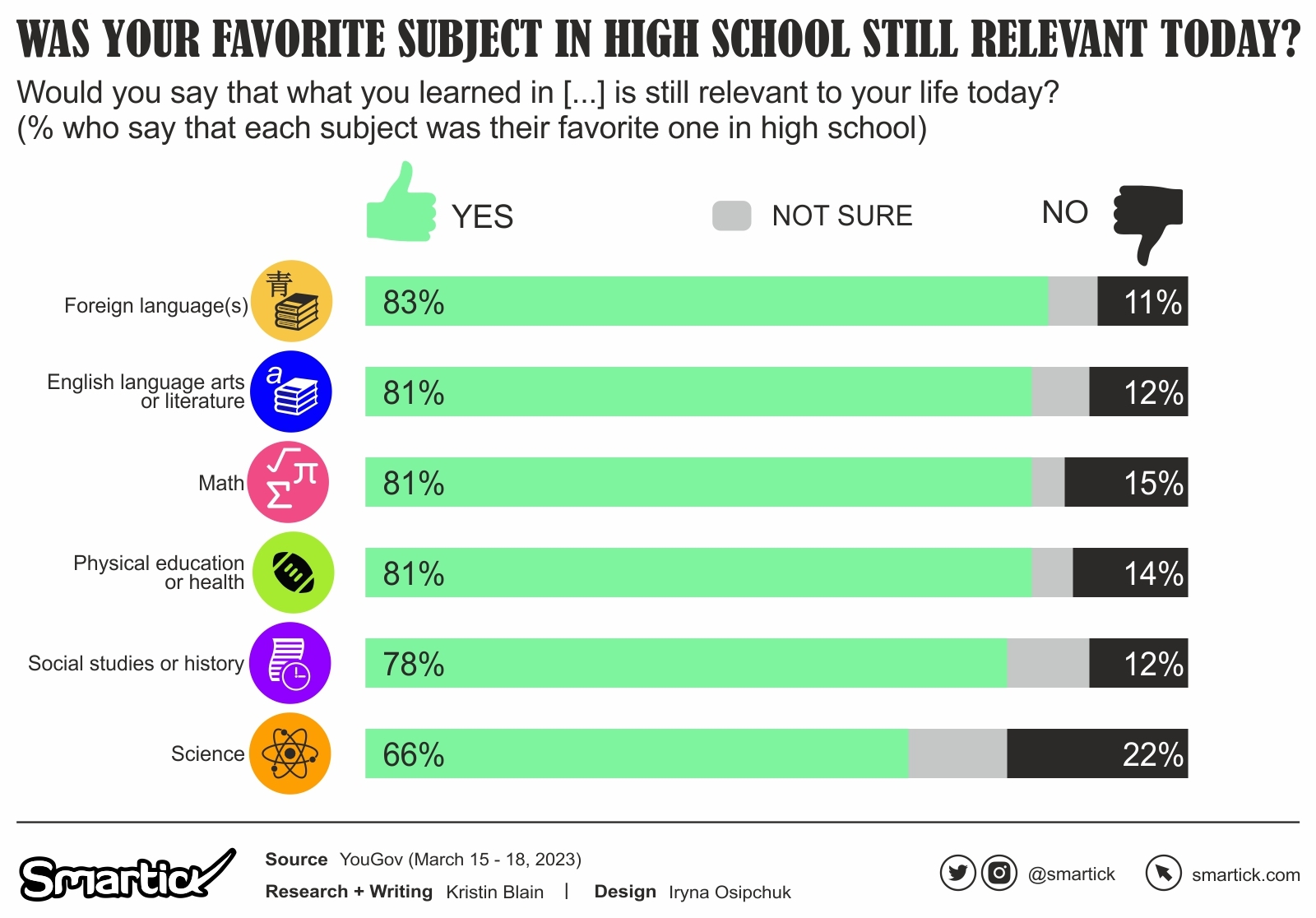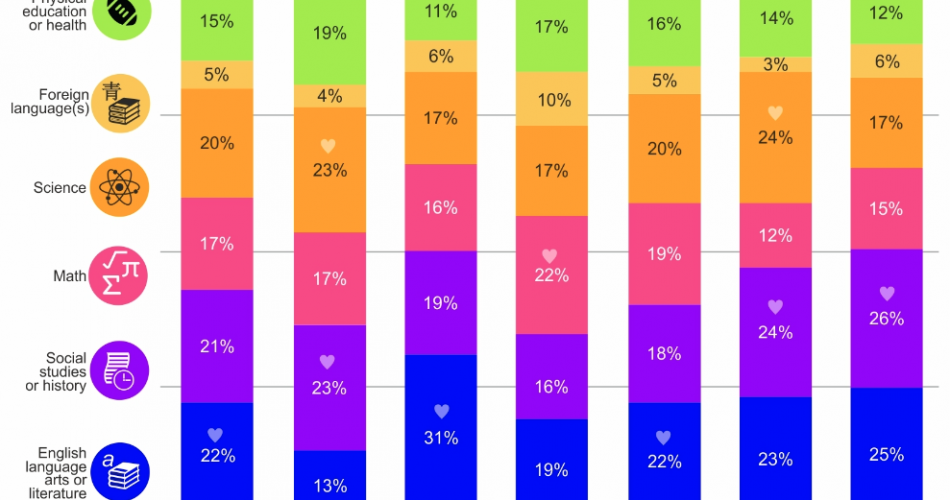
In a recent YouGov survey, Americans were prompted to reflect on their high school experiences and share insights into their favorite subjects and perceived usefulness of different courses for today’s K-12 students. This comprehensive study delves into the preferences and attitudes of American adults regarding high school education.

Most Useful Subject in High School
When participants were questioned about the perceived usefulness of six subjects, the prevailing sentiment was one of general agreement, with the majority acknowledging the importance of each subject for K-12 students. Notably, math emerged as the most endorsed subject, with an impressive 92% of respondents considering it either somewhat or very useful. This resounding support emphasizes the consensus on the critical role that mathematics plays in equipping students with essential skills for navigating the complexities of contemporary education and beyond.
However, amid the positive reception of various subjects, foreign languages stood out with the lowest approval rate, as only 76% of respondents deemed it useful. This finding underscores a divergence in opinions regarding the practical application of foreign language skills within the current educational landscape. While the majority recognizes the importance of a diverse range of subjects, the nuanced response to foreign languages suggests differing perspectives on its relevance and applicability in K-12 education.
Favorite Subject in High School
A detailed examination of respondents’ favorite subjects in high school reveals intriguing patterns and variations across different demographics.

Among the overall adult population, English language arts or literature emerged as the top choice, with 22% expressing a fondness for this subject. Social studies or history closely followed at 21%, indicating a significant appreciation for humanities-related disciplines. Mathematics garnered a respectable 17% favorability, while science and physical education or health received endorsements from 20% and 15% of adults, respectively. Notably, foreign languages were the least favored, with only 5% expressing a preference for this subject.
Breaking down preferences by gender, women exhibited a notable affinity for English language arts or literature, with 31% selecting it as their favorite, surpassing men by a significant margin. Men, on the other hand, demonstrated a higher preference for social studies or history and science.
Age-wise distinctions highlight that the younger demographic, aged 18-29, showed a pronounced preference for math, with 22% selecting it as their favorite. In contrast, those aged 45-64 expressed a stronger inclination towards social studies or history and science. The oldest age group, 65 and older, demonstrated a diverse range of preferences, with no single subject overwhelmingly dominating their choices. These nuanced insights into favorite subjects shed light on the diverse educational experiences and preferences that shape individuals across different age groups and genders.
Relevance of Favorite Subjects Today
The survey also explored whether respondents considered their favorite high school subjects still relevant to their lives today. Results showed that, for the majority of Americans, their favorite subjects remained relevant. However, science stood out with 22% of respondents who considered it their favorite subject expressing that what they learned in science class is not relevant to their current lives.

This YouGov survey provides valuable insights into Americans’ perspectives on high school education. While the majority consider various subjects useful, there are nuanced preferences and variations in perceived relevance. The findings suggest that understanding these attitudes can contribute to shaping a more tailored and effective educational curriculum for future generations.

